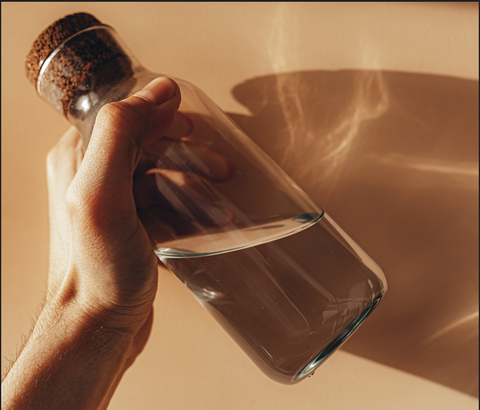
The Healthiest Water To Drink: Is There Such A Thing?
, by Tanmoy Das, 5 min reading time
""Free Shipping on USA"" We do not provide any authorization invoice for amazon Resale.

, by Tanmoy Das, 5 min reading time

Did you know that drinking plain water can be unhealthy for you? Water is essential for both human and animal life. It's a vital component of food, helps us to regulate our body temperature, and more.
For years now, people have talked about the benefits of antioxidant-rich water. But recently, researchers discovered something that makes water containing high levels of antioxidants even more effective at promoting health: it has zero calories.
But what do you do if drinking water isn't healthy for you or your animals? In this post, we will explore the various factors that go into making water healthy for humans and animals and whether or not there is such a thing as "the healthiest water to drink.
From contaminants to pH levels, read on to learn everything you need to know about water quality. And in this blog post, we'll share with you all of the details you need to know to find the healthy water you need to drink.
Water is essential for human health, and it can be a great way to stay hydrated on the go. But what's the healthiest water to drink? According to experts, there isn't one specific type of water that's always best for you. In fact, many factors affect how healthy your water is, including where it comes from and how it is treated. Here are four important things to consider when choosing your water:
It's important to choose a water bottle or container that will protect your water from bacteria and other contaminants. Bottled waters often have more contaminants than tap water, so make sure to avoid those if possible. Make sure the filter is good quality and replace it every few months if needed.

Your water source can have a big impact on its overall health. Tap water generally contains less chlorine than bottled water, but some municipalities add fluoride to their supplies as part of public health campaigns. Fluoridated tap water has been linked with negative dental outcomes in children, so ask your municipality if they fluoridate their drinking supply. Spring or well-water may be healthier choices if you have concerns about municipal supplies contaminants but check with your local authority first.
There are many types of water, but which is the healthiest to drink?
Pure water is best. It has no additives and contains only water molecules. Tap water can be considered pure, but it often contains minerals and chemicals that can affect your health. Bottled or tap water from a reverse osmosis filter is usually considered the healthiest type to drink. Water filtered through a carbon filter may also be good for you, depending on the quality of the filter.
If you want to drink groundwater, make sure it's from an unpolluted source. The United States Environmental Protection Agency (EPA) recommends avoiding groundwater from wells in areas with high levels of hazardous pollutants. Some people also recommend avoiding well water if you have a family history of cancer or other diseases.
There's yet to be a definitive answer when it comes to the healthiest water to drink, as different people have different nutritional needs and preferences. However, drinking plenty of water, both hot and cold, has been linked with a number of health benefits, including weight loss, improved digestion, better skin and hair quality, reduced anxiety and stress levels, stronger immune system function, and reductions in the risk of heart disease, stroke, cancer, and other illnesses. Here are some key points to keep in mind if you want to drink

healthier water:
There's no single answer to this question since everyone has different needs and preferences. However, here are some general tips to help you choose the right type of water for you to include:

1) Think about your drinking habits. If you primarily drink filtered or bottled water, that's the best type. But if you're more likely to drink tap water or have a hard time getting drinks that are low in contaminants (such as from certain types of springs), there may be better options than filtered or bottled water for you.
2) Consider your health concerns. If you have health concerns related to water contaminants, stick with filtered or bottled water. But if you don't have specific concerns about water purity and contaminants, then tap water is likely fine for most people.
3) Consider your budget. If money is tight, it may be worth considering sources of free or inexpensive water, such as from local reservoirs or wells.
So, there is no one-size-fits-all answer to this question, as individual preferences and needs determine the healthiest water to drink. However, some tips on how to make the most of good water include choosing a filter, beating up a pot of leaves, and drinking cold water throughout the day.
Author's Precipfilter_Team



